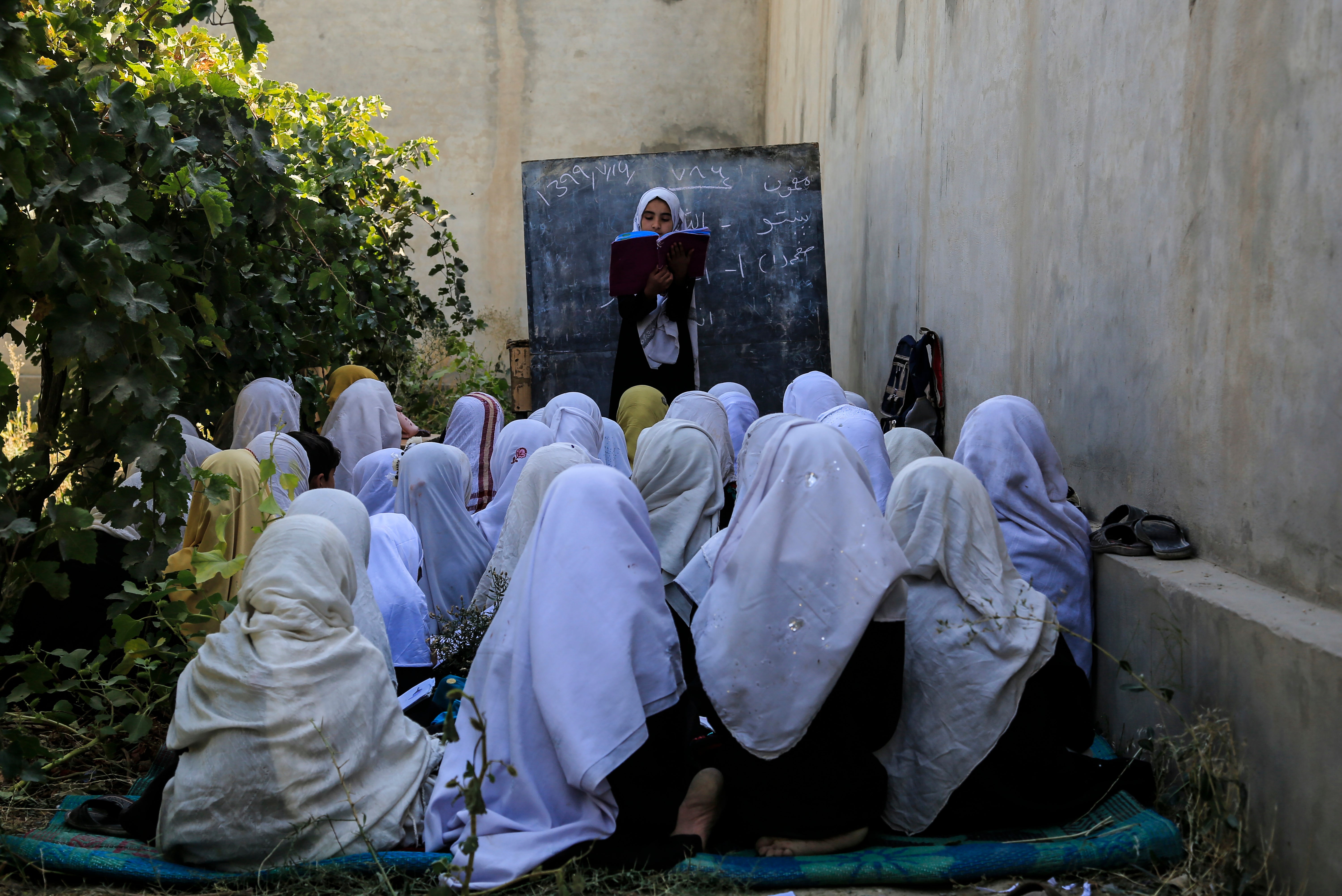Afghan ministry tried to shift blame over girls singing ban
Afghanistan’s education ministry denies it was behind a recent memo that banned girls 12 years old and older from singing in public

Your support helps us to tell the story
From reproductive rights to climate change to Big Tech, The Independent is on the ground when the story is developing. Whether it's investigating the financials of Elon Musk's pro-Trump PAC or producing our latest documentary, 'The A Word', which shines a light on the American women fighting for reproductive rights, we know how important it is to parse out the facts from the messaging.
At such a critical moment in US history, we need reporters on the ground. Your donation allows us to keep sending journalists to speak to both sides of the story.
The Independent is trusted by Americans across the entire political spectrum. And unlike many other quality news outlets, we choose not to lock Americans out of our reporting and analysis with paywalls. We believe quality journalism should be available to everyone, paid for by those who can afford it.
Your support makes all the difference.Afghanistan's education ministry on Monday denied it was behind a recent memo that banned girls 12 years old and older from singing in public, putting the blame instead on the ministry's Kabul department and its local chief.
The memo, a copy of which was seen by The Associated Press, had gone out to all school districts in Kabul, the Afghan capital.
It stated that girls older than 12 cannot perform in any public event and that singing at such events is strictly forbidden. It went on to say that only female teachers can teach music to girls older than 12.
The memo triggered an outcry from activists and prompted a social media campaign known as #IAmMySong, started by Ahmad Sarmast, the founder of Afghanistan’s Institute of Music. The campaign gained traction on Twitter with some Afghan girls singing their favorite tunes for the camera and calls popping up for petitions to oppose the directive.
The ministry then tried to backpedal, with spokeswoman Najiba Arian insisting last Friday that the purpose of the memo was misunderstood and that its objective was not to ban girls singing but to prevent boys and girls from participating in public events that could spread the coronavirus.
A new memo was subsequently sent, saying music groups for both secondary school girls and boys were being banned because of the pandemic. Afghanistan has recorded more than 55,000 cases of the virus and 2,451 deaths but testing is inadequate and the real numbers are believed to be far greater.
On Monday, a statement from the ministry said it is “committed to support the right to education and the right of all male and female students to participate in cultural, artistic and sports programs.”
"This ministry does not intend to restrict the legal and educational rights of students,” it added.
Arian on Monday said the original memo “does not reflect the official position and policy" of the ministry. She added that an investigation was launched into the Kabul branch of the ministry and its chief, Ahmad Zameer Gowara, who was responsible for the memo.
“If necessary, the Ministry of Education will also resort to disciplinary action,” Arian also said.
The memo and the subsequent uproar comes as women’s rights activists and civil society groups are fighting to ensure that fragile human rights gains made over the last 20 years in Afghanistan — since the U.S.-led invasion ousted the Taliban regime — take center stage in the peace talks underway between the Kabul government and the Taliban. It also shows how the rights of girls and women are under threat from conservatives on both sides of the protracted conflict.
Sarmast, who started the hashtag campaign, said those defending the rights of women and girls are “not going to keep silent until the result of the investigation" are announced.